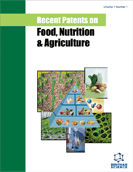Abstract
Recently donkey milk has been the focus of several studies because of its special nutritional properties and composition, which is very close to human milk. When a mother cannot breastfeed, or chooses not to breastfeed, the use of a milk substitute must provide the best option to meet the nutritional and health needs of the infant. Donkey milk has been widely used in the past to replace human milk, because chemical composition and protein content are close to that of human milk, and also because the allergenicity of donkey milk is low. The recent studies of the paediatric scientists have demonstrated that infant formulae, which are based on dairy cows milk, are less adapted than donkey milk. In fact, donkeys milk digestibility is higher than cows milk and similar to human milk, because of the high whey proteins content and the few casein content. Since donkey milk supply is related to its seasonal availability during the year, in this study were evaluated the effects of a specific technological treatment (spray-dryer) and a particular storage temperature (-20°C) on the protein fractions of donkey milk. The results obtained in fresh, frozen and powdered donkey milk showed different values in total proteins, caseins, whey proteins and lysozyme content. The article presents some promising patents on protein fractions among fresh, frozen and powdered donkey milk.
Keywords: Donkey milk, protein fractions, powdered milk, frozen milk, lysozyme
Recent Patents on Food, Nutrition & Agriculture
Title: Differences of Protein Fractions Among Fresh, Frozen and Powdered Donkey Milk
Volume: 2 Issue: 1
Author(s): Paolo Polidori and Silvia Vincenzetti
Affiliation:
Keywords: Donkey milk, protein fractions, powdered milk, frozen milk, lysozyme
Abstract: Recently donkey milk has been the focus of several studies because of its special nutritional properties and composition, which is very close to human milk. When a mother cannot breastfeed, or chooses not to breastfeed, the use of a milk substitute must provide the best option to meet the nutritional and health needs of the infant. Donkey milk has been widely used in the past to replace human milk, because chemical composition and protein content are close to that of human milk, and also because the allergenicity of donkey milk is low. The recent studies of the paediatric scientists have demonstrated that infant formulae, which are based on dairy cows milk, are less adapted than donkey milk. In fact, donkeys milk digestibility is higher than cows milk and similar to human milk, because of the high whey proteins content and the few casein content. Since donkey milk supply is related to its seasonal availability during the year, in this study were evaluated the effects of a specific technological treatment (spray-dryer) and a particular storage temperature (-20°C) on the protein fractions of donkey milk. The results obtained in fresh, frozen and powdered donkey milk showed different values in total proteins, caseins, whey proteins and lysozyme content. The article presents some promising patents on protein fractions among fresh, frozen and powdered donkey milk.
Export Options
About this article
Cite this article as:
Polidori Paolo and Vincenzetti Silvia, Differences of Protein Fractions Among Fresh, Frozen and Powdered Donkey Milk, Recent Patents on Food, Nutrition & Agriculture 2010; 2 (1) . https://dx.doi.org/10.2174/2212798411002010056
| DOI https://dx.doi.org/10.2174/2212798411002010056 |
Print ISSN 2212-7984 |
| Publisher Name Bentham Science Publisher |
Online ISSN 1876-1429 |
 26
26Related Articles
-
Recent Developments in the Separation of Low Molecular Weight Heparin Anticoagulants
Current Medicinal Chemistry Toxicological Aspects of Carbon Nanotubes, Fullerenes and Graphenes
Current Pharmaceutical Design Role of Vitamins in Human Health and Nutrition: Sources and Morbidity
Current Nutrition & Food Science Synthesis of 5-Arylidene Barbiturates: A Novel Class of DPPH Radical Scavengers
Letters in Drug Design & Discovery Neonatal Brain Hemorrhage (NBH) of Prematurity: Translational Mechanisms of the Vascular-Neural Network
Current Medicinal Chemistry Azelaic Acid: A Promising Agent for Dermatological Applications
Current Drug Therapy Chemogenomics Approaches for Receptor Deorphanization and Extensions of the Chemogenomics Concept to Phenotypic Space
Current Topics in Medicinal Chemistry New Designer Drugs (Synthetic Cannabinoids and Synthetic Cathinones): Review of Literature
Current Pharmaceutical Design LipoSVM: Prediction of Lysine lipoylation in Proteins based on the Support Vector Machine
Current Genomics Isolation and Characterization of an Angiogeninlike Protein from Goat Plasma
Protein & Peptide Letters A Novel Method to Synthesize 4-Aryl-1H-1,2,3-Triazoles and its Antihepatoma Activity
Anti-Cancer Agents in Medicinal Chemistry Design, Synthesis and Biological Activity of New Hydroxamic Acids Containing 2-Imidazolylphenyl(oxy/thio)alkanoic Fragment
Current Bioactive Compounds Identification and Characterization of a Chemical Compound that Inhibits Methionyl-tRNA Synthetase from <i>Pseudomonas aeruginosa</i>
Current Drug Discovery Technologies Nanotubes at Neural and Immune Synapses
Current Medicinal Chemistry Synthesis and Antitumor Activity Assay of Epoxy Bicyclo[4.2.2]deca-2,4,7,(9)- tri(tetra)enes and Tricyclo[9.4.2.02,10]heptadeca-2,12,14,16-tetraene
Current Organic Chemistry Methods for Biomarker Verification and Assay Development
Current Proteomics Involvement of Cytoskeleton in AhR-Dependent CYP1A1 Expression
Current Drug Metabolism Oxidative RNA Damage and Neurodegeneration
Current Medicinal Chemistry Nanoparticle-Based Technologies for the Detection of Food Antioxidants
Current Analytical Chemistry QSAR Study on MHC Class I A Alleles Based on the Novel Parameters of Amino Acids
Protein & Peptide Letters




















